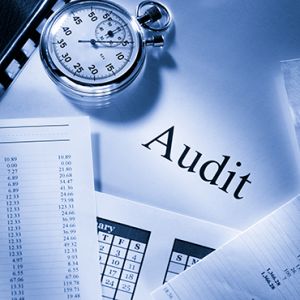Nonprofit Organizations – Sales and Use tax refund Q&A
by Meagan Bulloch
Q: Do nonprofit organizations have to pay sales or use tax on items they purchase?
A: Yes. NC does not exempt nonprofit organizations from paying sales or use tax on items they purchase for use.
Q: Are all nonprofit organizations eligible for refunds of the sales and use taxes paid?
A: No. The following entities may file for semiannual refunds of the sales and use taxes paid on purchases of tangible personal property for use in carrying on their nonprofit work:
- Hospitals not operated for profit
- Educational institutions not operated for profit
- Churches, Orphanages, and Other charitable or religious institutions and organizations not operated for profit
Q: What information does the Department of Revenue need to determine whether an organization qualifies for sales and use tax refunds?
A: A nonprofit organization must furnish the Department of Revenue with a copy of the documents used to create the organization (Articles of Incorporation, Articles of Amendment and Bylaws).
Q: An organization has a Section 501(c)(3) Federal exempt status. Does the organization automatically qualify to receive sales and use tax refunds?
A: No. The Department must review the documents used to create the nonprofit organization to determine whether it qualifies for refunds of sales and use taxes paid.
Q: How does an organization file a claim for refund?
A: The organization should complete Form E-585, Nonprofit and Governmental Entity Claim for Refund State and County Sales and Use Taxes.
Q: How often do I file the Form E-585?
A: Claims for refund are filed semiannually. The claim for refund of sales and use taxes paid during the period January 1 through June 30 is due to be filed by October 15th of the same year. The claim for refund for the period July 1 through December 31 is due to be filed by April 15th of the following year.
Q: What is the organization’s claim for refund is filed late?
A: Claims can be filed up to three years after the due date. Any filed later than three years will be denied.
Q: Should the receipts or invoices be mailed with the organization’s claim for refund?
A: No. Receipts and invoices should be kept by the organization for a period of three years beyond the date the refund claim id due to be filed or three years beyond the date the claim is filed, whichever is later.
This article is an excerpt from a bulletin from the Department of Revenue for North Carolina called “State Taxation and Nonprofit Organizations” For more information, please visit, here, or call our office for additional details.
Meagan Bulloch ([email protected]) is an audit manager at Langdon & Company LLP. She is focused primarily on non-profit clients.












 y Brittany Powell
y Brittany Powell , as many as 70% of applicants are expected to be eligible to use this form, not only slashing the time spent by those charities in completing the application but also minimizing the time spent by the IRS in reviewing their files. The electronic filing requirement is also expected to increase the efficiency of the process. An application fee of $400 must be electronically submitted with the application as well.
, as many as 70% of applicants are expected to be eligible to use this form, not only slashing the time spent by those charities in completing the application but also minimizing the time spent by the IRS in reviewing their files. The electronic filing requirement is also expected to increase the efficiency of the process. An application fee of $400 must be electronically submitted with the application as well.
 The Office of Management and Budget (OMB) recently published its Super Circular in the Federal Register. The circular makes several changes, summarized below, to the guidance previously known as Circular A-133. These changes will apply to audits of fiscal years beginning on or after December 26, 2014 (fiscal years ending December 31, 2015).
The Office of Management and Budget (OMB) recently published its Super Circular in the Federal Register. The circular makes several changes, summarized below, to the guidance previously known as Circular A-133. These changes will apply to audits of fiscal years beginning on or after December 26, 2014 (fiscal years ending December 31, 2015). 


 According to the IRS Exempt Organizations final report on colleges and universities the IRS has identified “some significant issues.” Two of them being Unrelated Business Income Tax (UBIT) and documentation of executive compensation.
According to the IRS Exempt Organizations final report on colleges and universities the IRS has identified “some significant issues.” Two of them being Unrelated Business Income Tax (UBIT) and documentation of executive compensation.